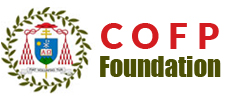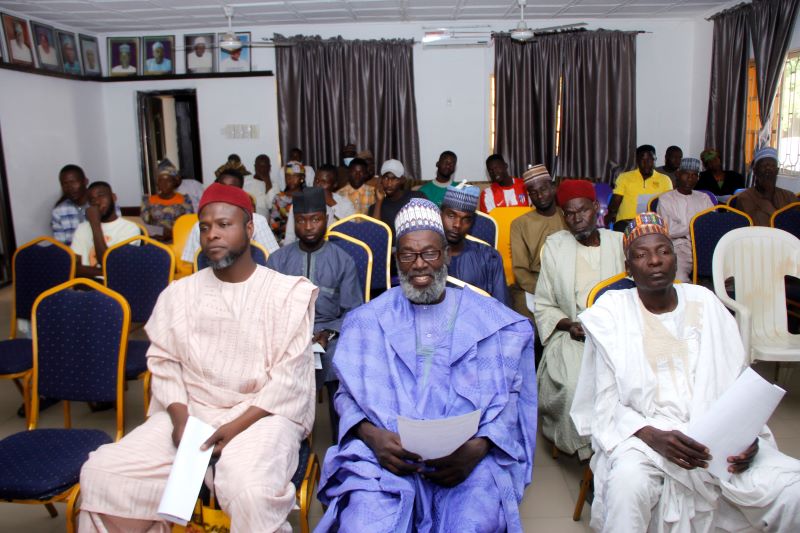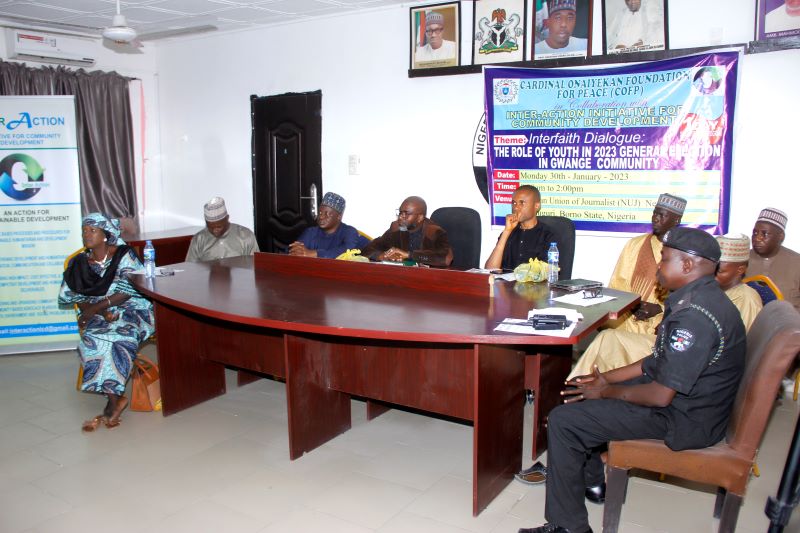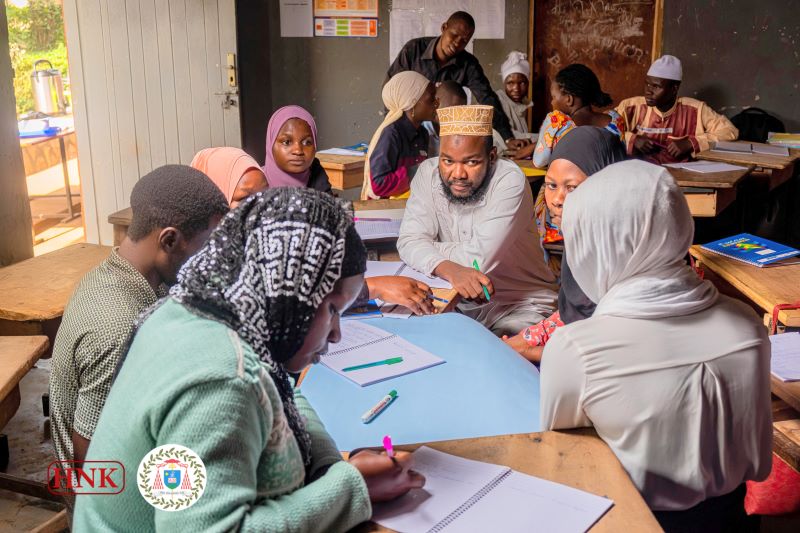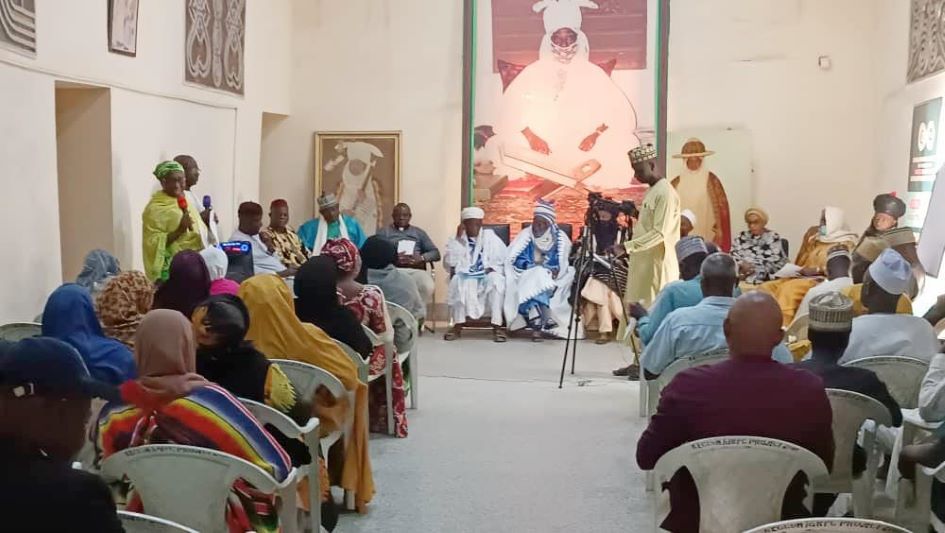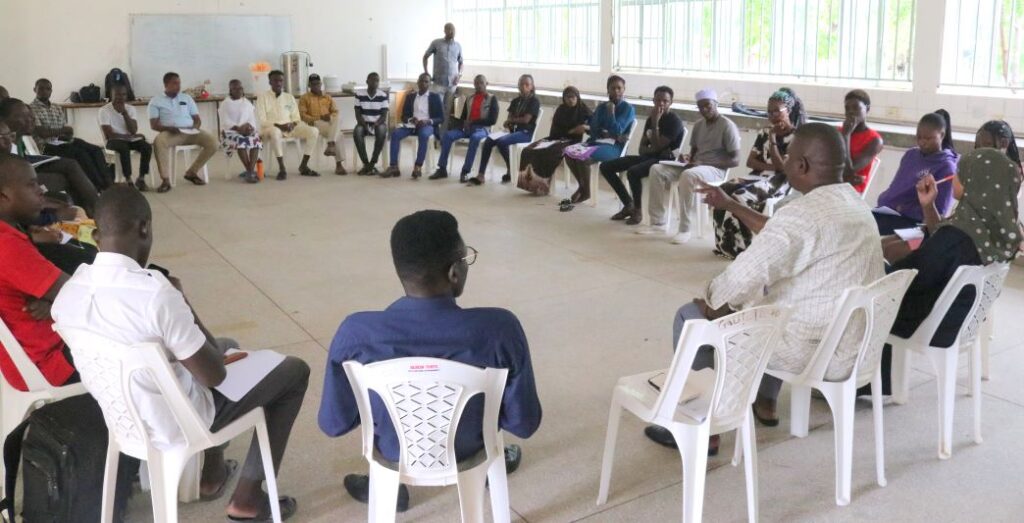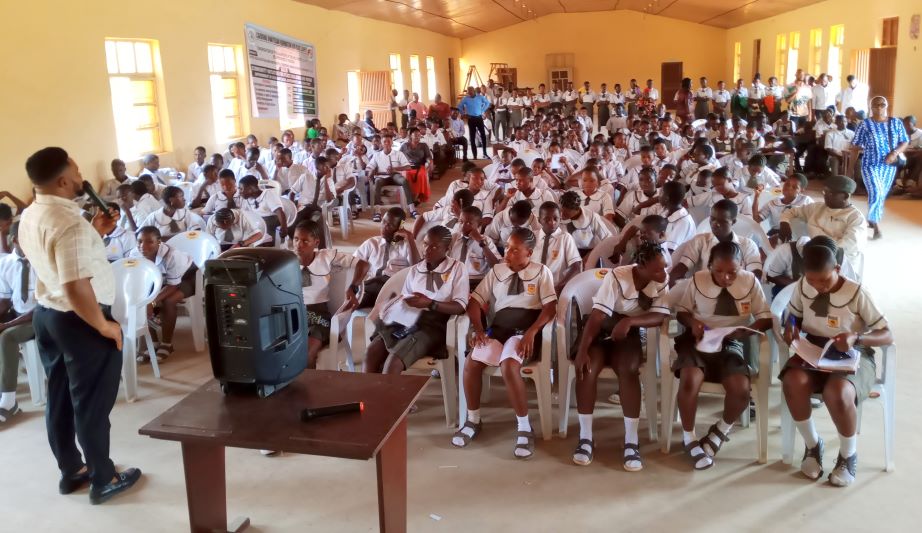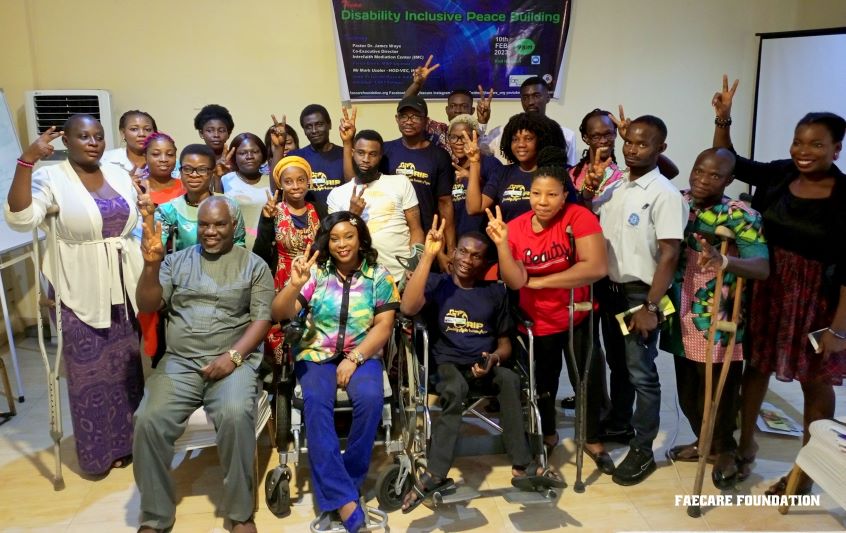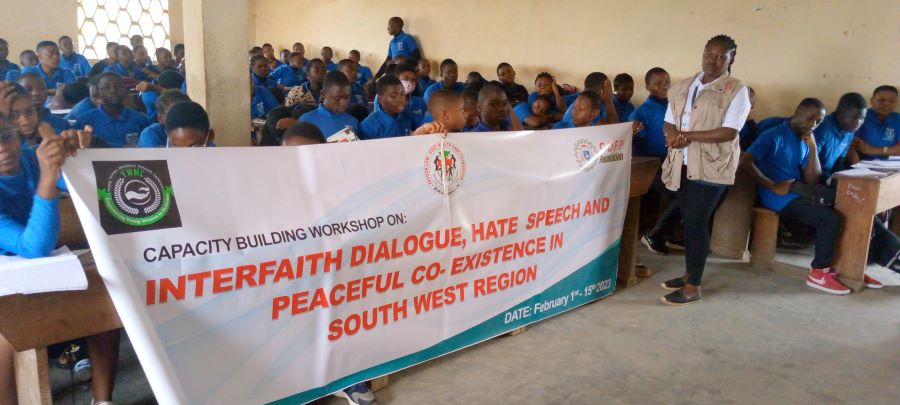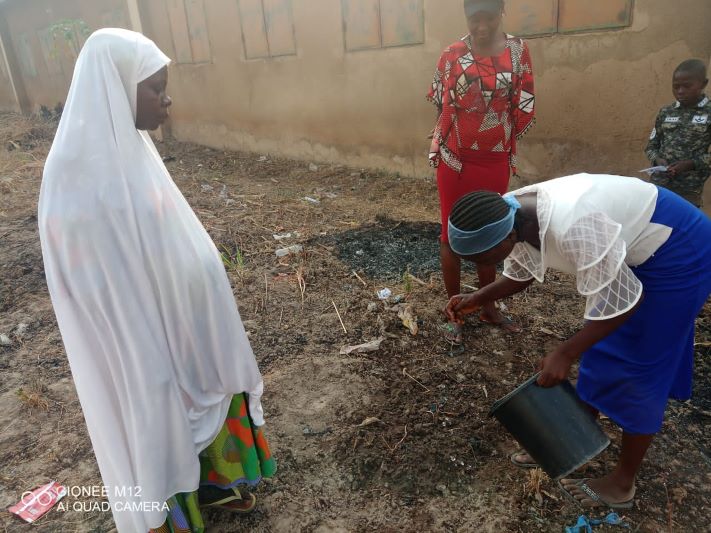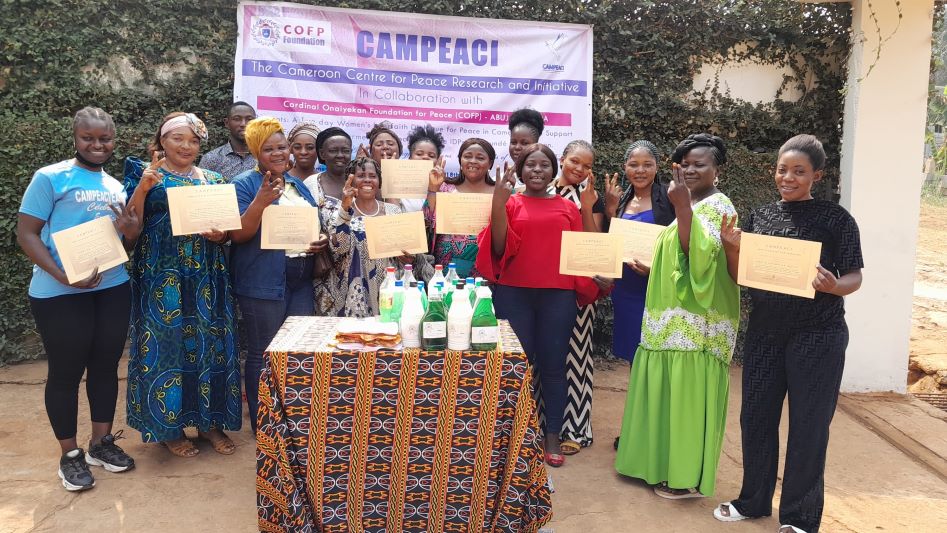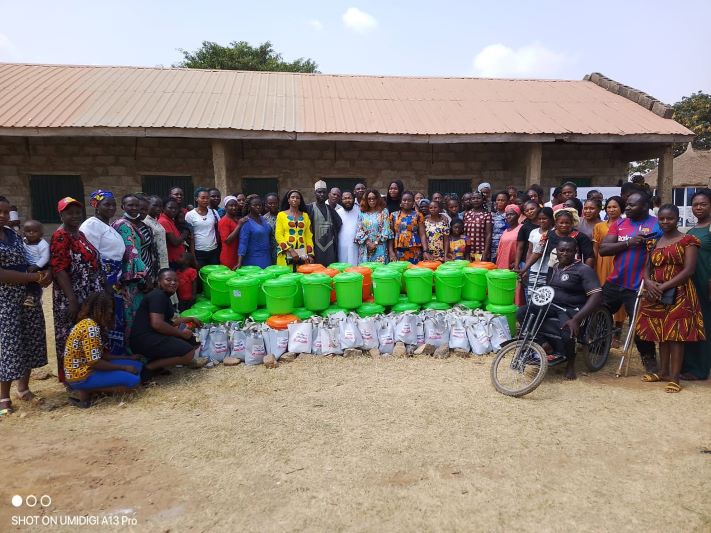COFP Fellows: Translating Dialogue into Concrete Actions
- Home
- COFP Newsletter (Jan – June 2023)
- COFP Fellows: Translating Dialogue into Concrete Actions
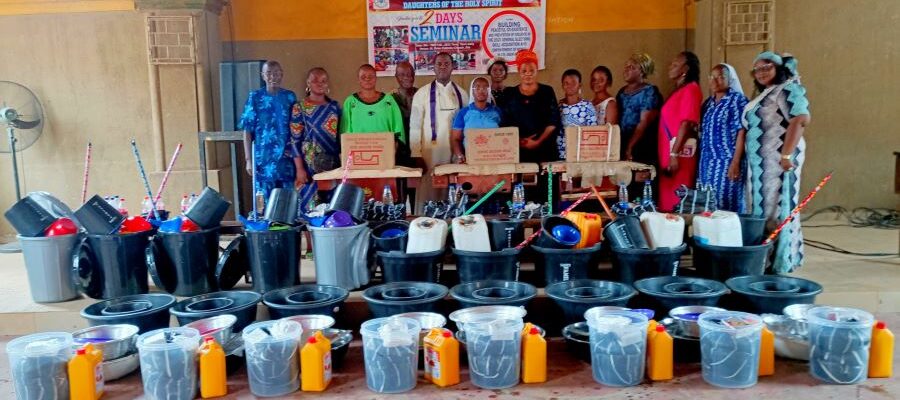
- 0 Comments
- admin
- July 5, 2023
The COFP Fellowship program is usually completed in the space of one year, with lessons collapsed into 3 modules; the first module in July, the second in November and the third in April! As such, participants (Fellows) are always given seed grants by the Foundation following the completion of the second module of the program to design and implement a peace project of their choice in their various communities. During the implementation phase, the staff and volunteers of COFP are usually sent to the different regions to supervise the projects being executed by their Fellows in order to assess the impact of the peace projects in the communities. For the 2022/2023 set, here are some of the stories of success recorded from the various peace projects implemented in different communities across Africa.
1. As a result of a terrorist attack by Alshabab radical Muslim terrorists on 2nd April 2015 at Garissa University which killed 147 Christian Students, a major wedge of division was driven among Christians and Muslims at the University. In a bid to be part of the psychosocial healing process seven years after, Daniel carried out a community peace project at Garissa University, Garissa County, North East Kenya with 33 undergraduates for a 2-day interactive, healing, and insightful interfaith dialogue workshop on the 3rd & 4th of February, 2023. The mental well-being of the students, the need for peaceful coexistence despite their religious and tribal affiliations, the ability to manage and deal with a generalized anxiety disorder (GAD) and the need to understand that the attack which occurred was an isolated case as well as develop the skill and capacity to reach out to and lend recovery support to their peers were some of the objectives for the interfaith dialogue workshop. By the end of the workshop, the participants confirmed that they had acquired more knowledge and skills for managing anxieties related to the terrorist attack more than anticipated. They thanked the organizer for giving them the opportunity to increase their knowledge on interfaith dialogue and coexistence. (Daniel Mugera Kathuri, COFP Fellow, 2022/2023, Kenya)
2. Rebecca who was the first Liberian to attend the COFP Fellowship program and through the skills acquired from the Fellowship program confessed that the Fellowship program has helped to heal her psychological wounds of the 14 years civil war in her country. Through the implementation of her community peace project, she was able to bring about reconciliation and better interaction among the Muslims and Christians in her community who initially does not allow inter-marriage and similar relationships among the two religious groups. According to Rebecca, her community peace project gave rise to the establishment of a sub-office of the Women of Faith in the community, which enables community dwellers, especially women to have regular interaction, and effectively support to one another. (Rebecca Tarpeh-Major A, COFP Fellow 2021/2022, Liberia)
3. Abdellah Khayya was able to form a coalition of ten local organizations, among them were, (Al manar Youth Assembly, Moroccan Youth League for Interfaith dialogue, Boujdour Young Leaders Alliance etc) by establishing a confederation of ten organizations working together to enhance peace in their community. The new established group agreed to organize peace activity every 6 months and got their local municipality government to sign an MOU with them permitting them to use their training facility for the next one-year in executing their peace activities which targets Secondary/Higher School students in their locality. Their aim of this one-year project in Morocco is to promote culture of peace & interreligious co-existence among the students as well as raise young peace ambassadors from their educational institutions. (Abdellah Khayya, COFP Fellow, 2021/2022, Morocco).
4. Sr. Jethro testified that the COFP Fellowship program has given her the opportunity to touch many lives positively in her Mayodarle, Adamawa Region of Cameroon that is divided along ethnic and religious lines, due to the influx of internally displaced persons who escaped dangers from their original homes to settle in the community and in a bid to create a means of survival, embraced farming, which in itself was causing a lot of conflict between them and the original settlers. Determined to promote peace in the locality, she invited some women from the Traditional, Islamic, and Christian religions to participate in her skill acquisition and empowerment workshop activities where she taught them to co-exist peacefully through farming, sewing and bakery skills. Thereafter, the women were empowered with start-up farming tools like improved seedlings of cocoyam, and corn as well as baking items and sewing materials like sewing machines while others received some cash. The women went home and got busy with their new knowledge and are gradually transforming their lives and community. They formed social support groups and are daily growing their farms and businesses. They are now too busy to become tools for discord, or hate speech rather they pilot peaceful co-existence and unity in diversity in the community. (Nkenglefac Jethro,2022/2023 COFP Fellow, South West region of Cameroon)
5. In Maiduguri Borno State, Fellow David Baba Shaljaba organized a Peace project that attracted more than five traditional rulers (the Wakilis), Imams, Priests & his local Government Chairman. His project which centered on community building & coexistence was so impactful that his local community is clamoring for more & requested if he could organize it annually at least. Furthermore, his Local Government Chairman pledged to give him the necessary support in order to continue with the program while the USAID representative in the University of Maiduguri showed interest in partnering with him in executing similar project in the state. (Retired Brigadier General Shaljaba David Buba, COFP Fellow 2021/2022 Maiduguri, Borno State).
6. The sad reality of Gender-Based Violence in her community prompted Adesola to focus her community peace project toward mitigating the incidence in the area. Through her Fellowship project, she trained her participants in five different skill sets namely, bakery/pastries, confectioneries, event decorations, turbanators, and fascinators. At the end of the skill acquisition training, she purchased starter kits to help the beneficiaries to establish their businesses. Today, she is happy that her efforts and initiative yielded tremendous positive results among the youths and women who now are actively engaged in different areas of their skill specialization, some of them gained employment with other organizations while others are their own bosses. Consequently, her project community, Ayetoro now enjoys relative peace as a result of minimal incidences of domestic violence, and a boost in the economy of the remote community. (Odunaiya Adesola Olajumoke,2022/2023 COFP Fellow, Ayetoro-Gbede, Kogi State)
